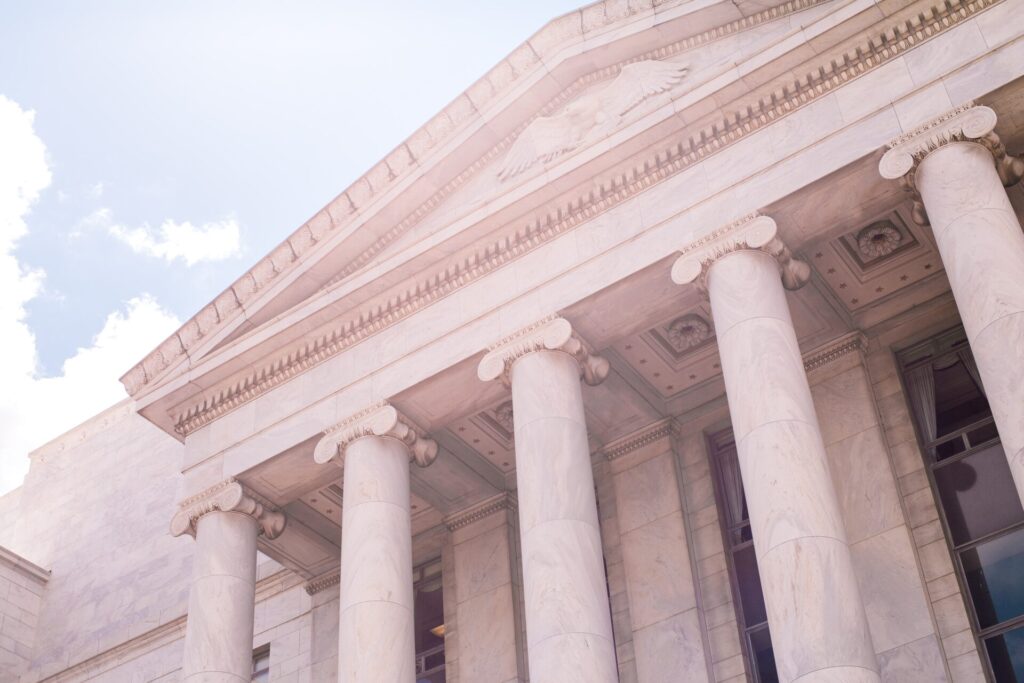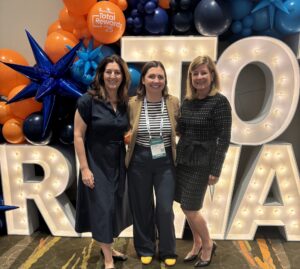A few weeks ago, I was delighted to attend an Aspen Institute Financial Security Program (Aspen FSP) event: Centering Financial Resilience in Workplace Benefits: Scaling Success For Everyone. It was terrific. The day kicked off with a conversation between two senators, one from each side of the aisle. Senator Cory Booker (D-NJ) and Senator Todd Young (R-IN) alternated between quips about each other’s hometown sports teams and strong agreement that there is a lot of work to be done to advance the financial security of working people in the United States. It was great to hear what they had to say about government action on this issue. But the fact is that with 63% of Americans living paycheck to paycheck amidst major economic uncertainty, it is clear that this is a problem larger than the government’s ability to solve it – and that employers in particular have a crucial role to play.
The Senators talked proudly about Secure Save 2.0, a bill that Congress passed at the end of last year in order to help more Americans prepare for financial emergencies. It’s important to pause on this progress. Even in the midst of our fractious political moment, Democrats and Republicans can agree that many Americans are not prepared to weather the inevitable ups and downs of our financial lives. We all see the problem.

Optimism about the government’s action on this issue went downhill from there. The comment that may have inspired the strongest response of the day was a moment when an event participant with meaningful access and influence in DC said something to the effect of: “Well, now that Secure Save 2.0 passed, we shouldn’t expect anything else from the government for the next decade.”
There was an audible, “Well, that sucks,” from someone else in the room.
I actually don’t find that perspective distressing. There is no reason for us to rely entirely on the government. The reasons that people are not prepared to manage emergencies are broad and require a broad group of players and solutions to address them.
Secure Save 2.0 is a great example of this: the legislation essentially says (among other things) “if you, as an employer, offer a 401(k), then you can also offer emergency savings accounts within your retirement program.” The law is a statement of the importance of this issue and an express authorization and invitation to employers to help solve it. But, the reality is that the majority of lower-earning Americans, who are disproportionately vulnerable to both an underfunded retirement and an unaffordable emergency, do not have access to 401(k)s in the first place. So, for Secure Save 2.0 to accomplish its objective, private actors such as employers and individual donors need to take its statement of importance even more seriously than its methodology.
A question that is often posed in response to problems in the U.S. is: who should fix this: government, employers or individuals? My response is: yes.
We all have a role to play and tools to bring to bear to support employee financial well-being
Government can shine a spotlight on what matters and smooth the way legally. But, employers are in the midst of an extraordinary evolution in the ways that they support employees. We are moving from an era of general, narrow benefits (and workplace expectations, for that matter) that are applicable in the same way to everyone, to more personalized benefits (and expectations) that take into account the individual needs of each person. Just as in healthcare or in financial advice – technology and data enable better targeting and more choice. Some employees want life insurance, while others prioritize repayment of their student loans. Some care deeply about workplace flexibility, while others thrive with in person connection with colleagues.
The employees who are most likely to experience financial hardship in the case of an unpredictable or unavoidable emergency prioritize the exciting set of employee financial wellness programs in their early stages of development. These include financial advice, emergency savings accounts, earned wage access, and pooled emergency funds like those that Canary facilitates.
These types of programs are critical when employers and employees alike are staring down economic uncertainty. For employees, they are table stakes. They have a significant impact on their day-to-day lives and are highly valued as a result. This is especially true for emergency funds, which help employees in the midst of a crisis. For employers, they are a cost-effective way to be there for their people when they need it most. They yield a high return on investment. The result? Companies can build a work community that meets the moment, empowering a steadier workforce that is more engaged with their employer and each other.






